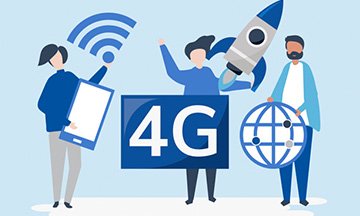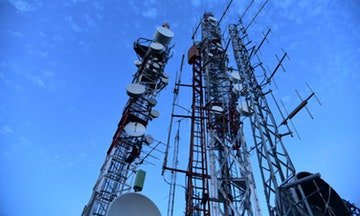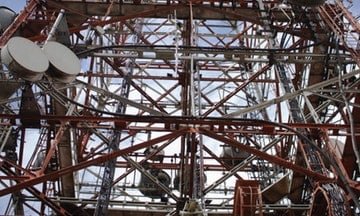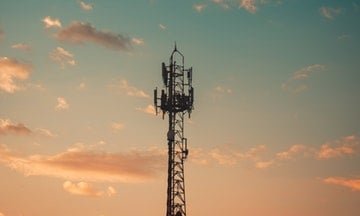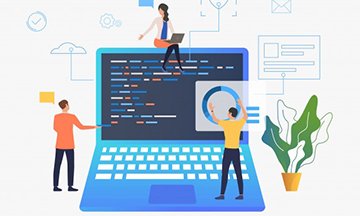4G LTE Training Course
| Date | Venue | Duration | Fees | |
|---|---|---|---|---|
| 06 May - 08 May, 2024 | Windhoek | 3 Days | $4100 | Register |
| 06 May - 10 May, 2024 | Dubai | 5 Days | $4750 | Register |
| 03 Jun - 07 Jun, 2024 | Dubai | 5 Days | $4750 | Register |
| 29 Jul - 09 Aug, 2024 | Dubai | 10 Days | $8775 | Register |
| 05 Aug - 09 Aug, 2024 | Dubai | 5 Days | $4750 | Register |
| 19 Aug - 30 Aug, 2024 | Lagos | 10 Days | $9150 | Register |
| 02 Sep - 06 Sep, 2024 | Dubai | 5 Days | $4750 | Register |
| 14 Oct - 18 Oct, 2024 | Dubai | 5 Days | $4750 | Register |
| 04 Nov - 08 Nov, 2024 | Dubai | 5 Days | $4750 | Register |
| 18 Nov - 29 Nov, 2024 | Nairobi | 10 Days | $9150 | Register |
| 02 Dec - 06 Dec, 2024 | Dubai | 5 Days | $4750 | Register |
Course Overview
Majority of the mobile users in the world are using Smartphone. The Evolution happened in the past decade with the increasing demands for higher speeds and application-specific needs.
This has come into reality with a vision of major player’s collaborations and with lot of effort and hard work over the past decades. This has led to the foundation of the LTE Technology by collaborating to address the broadband needs of the customer.
With the deployment happening for some of the LTE use cases, still, there are more challenges that need to be addressed in terms of speed, latency, spectral efficiencies in the LTE in terms of maintenance of operations.
Course Objectives
The main objective of this training course is to empower Wireless professionals with
• Deep dive into LTE Cellular Wireless Technologies
• Knowing more about the User, Access and Core learning of the 4G
• Core Difference between 3G and 4G w.r.t to huge gain in broadband speeds, low latency, simplification in architecture and connectivity
• Deep insights about the Air interface functionalities as per 4G Long Term Evolution 3gpp Standards.
• Giving the ingredients of4G for the layer specific details PHY, MAC,RLC,RRC,PDCP
• Introduction quality of service addressing of the needs
• Understanding the Industry insights and key players in the success of the LTE Deployment and operations.
• Log analysis of some of the scenarios, with the open source tools.
Training Methodology
Zoe Talent Solutions makes deliberate effort to understand each participant’s training need and delivers training in various ways, depending on the topic and audience.
The training format includes group debates and activities, audio/video presentations, case study discussions, group experiential learning activities, role-plays, etc.
The trainer also elaborately discusses practical issues and challenges faced by the trainees at their respective workplaces to help trainees relate and apply the information and knowledge gained through the course in their role and work profile.
Zoe Talent Solutions’ follows its highly successful Do–Review–Learn–Apply Model.
Organisational Benefits
Organizations whose employees undertake this course will benefit in the following ways:
• More equipped with Next generation wireless skills to address industry needs.
• High performing, tracking team goals w.r.t to customer satisfaction
• Achieving the good quality of technical skills for the entire team and being productive in giving time to market solutions in the 4G wireless spaces.
• Becoming more confident and creating technically motivated work culture.
• Increasing the competency development with the team and in the organization towards understanding the customer requirements with known knowledge.
Who Should Attend?
This 4G Training Course is beneficial for the following:
• Engineers from Original Equipment Manufacturers, Telecom Operators
• Engineers from cellular wireless back ground, GSM, UMTS Engineers from Radio Frequency, KPI and Operations, Administrations back ground who worked in 3gpp standards of different existing cellular technologies like GSM, UMTS, LTE KPI, RF< OAM Engineers, want to get into deeper insights of 4G LTE Air Interface Protocol Stack.
Personal Benefits
• Detailed aware of the 4G Long Term Evolution Interface protocol Stack
• Being Confident in handling the practical insights about the deployment.
• Well productive in reaching the team goal and organizational goals
• Satisfy the operators, equipment vendors and accordingly end customers
• Operators consider, organizationally and personally capable of handling the 4G deployments and operations.
General Notes
• All our courses can be facilitated as customized In-House Training course. Course duration is flexible and the contents can be modified to fit any number of days.
• As for Open Enrolment Courses, we offer our clients the flexibility to choose the location, date, and time
• And our team of experts who are spread around the globe will assist in facilitating the course.
• The course fee includes facilitation, training materials, 2 coffee breaks, and buffet lunch.
• Certificate of Successful completion of Training.
• FREE Consultation and Coaching provided during and after the course
Course Outline
– 4G LTE Training
Module I : Wireless Evolution
• Brief History of the Wireless and Focus on Cellular Wireless
• Basic Call Processing
• Different Wireless Standards and 3GPP Standards in Details
• Goals of Wireless and Main KPI are of the Technology.
• 2G/3G Architecture and Interfaces
• Drawbacks and Reasons for Adopting New Technologies
Module VII: 4G RRC Layer Design
• Idle Mode Procedures
• PLMN Selection, Cell Types
• Cell Selection, Cell Re-Selection
• RACH, MIB, SIB1 Decoding.
• Other SIBs, 2,3,4,5,6,7,8,9
• Measurements, Paging, DRX
• Configurations
• Connected Mode Procedures
• RRC Establishments, Re-establishment, RLF, RACH Failure, Mobility from EUTRA, Re-configuration, Handover, Measurements, L3 Filtering, IRAT, SX2, S1-HO, Redirection, CCO, CSFB Call Flows.
Module II : Introduction to LTE/4G
• Lessons Learnt from 2G/3G
• Requirements of LTE and Key Parameters of LTE
• Key Technology Enablers for LTE to Achieve KPI Targets
• End to End Architecture of LTE with Interfaces
• Backward Compatibility with 2G, 3G and Interoperability with Other Vendors
Module VIII: 4G MAC Layer Design
• Channel Mapping – Downlink
• Channel Mapping – Uplink
• MAC Main Functions
• MAC Architecture and Entity
• MAC Procedures
• Random Access Procedure
• DL-SCH Transfer
• HARQ Entity, Process, Operation
• Disassembly and de-multiplexing
• UL-SCH transfer
• UL Grant Reception
• HARQ Entity, Process, Operation, LCP, BSR, SR
• PDUS, RNTIs, LCID
Module III: Protocol Stack Overview of LTE
• Protocol Stack View of LTE
• User Plane and Control Plane Stacks
• Core Network Layers GTP, SCTP, S1AP Module IX: 4G RLC Layer Design
• RLC Main Functions
• RLC Architecture
• RLC Modes – TM, UM, AM
• RLC ARQ Operations – for Reliable Data Transfer
• AM ARQ Procedures
• TX and RX Operation
• State Variable –TX and RX
• Re-Transmission
• Status Reporting
• SDU Discarding
• Polling
• Protocol Data Units
• RLC Control PDU
• RLC Data PDU
Module IV: LTE QoS Terminology
• QoS – Quality of Service Vs Applications,
• QCI – Quality Class Identifier
• Types of Bearers, Default, Dedicated, S1, S5, RAB, EPS Bearers
• Access Point Name and Services
• GBR, Non-GBR w.r.t QoS
• Re-8 Features, Rel-10 Features Module X: 4G PDCP Layer Design
• PDCP Architecture
• Functions and Services
• Header Compression and Decompression
• Integrity Protection and Ciphering
• Protocol Data Units
• Formats and Parameters
• Constants, Variables and Timers
Module V: NAS Introduction
• NAS Layer Overview
• NAS UE States MME States
• Mobility Management Procedures
• Session Management Procedures
• NAS Basic Call Flows and Bearer Establishments
• Activation of Default Bearer
• Activation of Dedicated Bearer
• Attach Call Flow – Deeper Details Module XI: Log Analysis HANDS-ON
• Wireshark Log Analysis:
• VoLTE Log analysis of 4G
• NAS Call Flow Analysis
• SRVCC Log Analysis
Module VI: PHY Layer Design
• Introduction to PHY and Cellular Coverage
• BW, Frequency, EARFCN, FDD, TDD, Frame Structure, OFDMA, SC-FDMA
• Channels – UL, DL – PDCCH, PUSCH, PDSCH, PHICH, PCFICH
• Signals – PSS,SSS, CRS, SRS, DMRS
• MIMO, MCS, Transmission Modes and Throughputs Effects
• DCI Formats – 0,A, 1A, 2, 2B, 2C, 3A
• PHY Layer Channel Processing – Coding, Scrambling, Rate Matching, Layer Mapping
